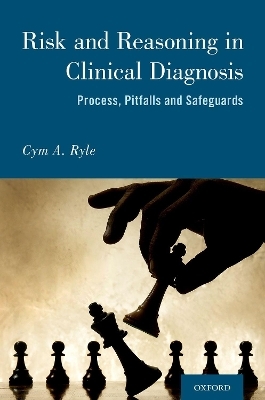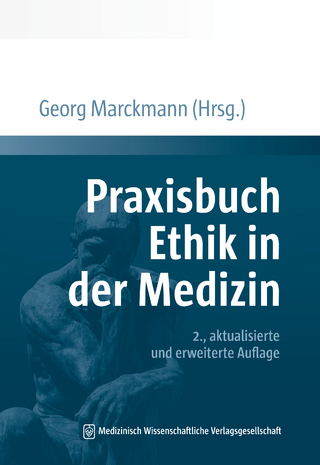
Risk and Reasoning in Clinical Diagnosis
Seiten
2019
Oxford University Press Inc (Verlag)
978-0-19-094400-1 (ISBN)
Oxford University Press Inc (Verlag)
978-0-19-094400-1 (ISBN)
Accurate diagnosis is the foundation of medical practice, but at the start of the diagnostic process, uncertainty is inevitable. The clinician's skills and cognitive attributes determine the quality of the initial differential diagnosis and thus the crucial first phases of investigation and treatment; mistakes are often self-propagating. Diagnostic error is a major cause of avoidable morbidity and mortality, and is the commonest reason for successful litigation.
Risk and Reasoning in Clinical Diagnosis is an accessible and readable look at the diagnostic process. Dr. Cym Ryle presents the insights and concepts developed in cognitive psychology which have led to the consensus that in all domains human reasoning is primarily driven by unconscious, intuitive mechanisms; the contribution of structured, analytical thinking is variable and inconsistent. He notes that the risk of error is inseparable from these mechanisms.
Dr. Ryle then develops a description of the diagnostic process which encompasses its form, strengths and fallibility, and illustrates this description with examples from his work as a general practitioner. He argues that improving diagnostic accuracy should be a priority, and that there is sufficient evidence to guide changes in medical training, in clinical practice, and in the culture and organisation of our institutions. He identifies specific, practical steps that can be taken by individual clinicians and by clinical teams, suggests priorities for action in our institutions, and considers the obstacles to progress.
Risk and Reasoning in Clinical Diagnosis is an accessible and readable look at the diagnostic process. Dr. Cym Ryle presents the insights and concepts developed in cognitive psychology which have led to the consensus that in all domains human reasoning is primarily driven by unconscious, intuitive mechanisms; the contribution of structured, analytical thinking is variable and inconsistent. He notes that the risk of error is inseparable from these mechanisms.
Dr. Ryle then develops a description of the diagnostic process which encompasses its form, strengths and fallibility, and illustrates this description with examples from his work as a general practitioner. He argues that improving diagnostic accuracy should be a priority, and that there is sufficient evidence to guide changes in medical training, in clinical practice, and in the culture and organisation of our institutions. He identifies specific, practical steps that can be taken by individual clinicians and by clinical teams, suggests priorities for action in our institutions, and considers the obstacles to progress.
Cym Ryle is a General Practitioner with the UK's National Health Service. He currently serves in locum posts in rural Scotland.
Dedication and Acknowledgements
Preface
1. Introduction
2. Human Cognition: Trying to Make Sense of the World
3. Diagnosis Terms: Meanings, Classifications, and Potential Misunderstandings
4. Diagnostic Reasoning
5. Probability and Uncertainty
6. Diagnostic Triumphs and Disasters
7.Safeguards: Opportunities and Obstacles
Further Reading
Appendix 1: Croskerry's List of 50 common biases
| Erscheinungsdatum | 18.07.2019 |
|---|---|
| Verlagsort | New York |
| Sprache | englisch |
| Maße | 206 x 137 mm |
| Gewicht | 249 g |
| Themenwelt | Medizin / Pharmazie ► Gesundheitswesen |
| Medizin / Pharmazie ► Medizinische Fachgebiete ► Medizinethik | |
| ISBN-10 | 0-19-094400-5 / 0190944005 |
| ISBN-13 | 978-0-19-094400-1 / 9780190944001 |
| Zustand | Neuware |
| Haben Sie eine Frage zum Produkt? |
Mehr entdecken
aus dem Bereich
aus dem Bereich
Grundlagen, Arzneimittelporträts, Anwendung
Buch | Hardcover (2024)
Urban & Fischer in Elsevier (Verlag)
69,00 €
Buch | Softcover (2022)
MWV Medizinisch Wissenschaftliche Verlagsgesellschaft
39,95 €


